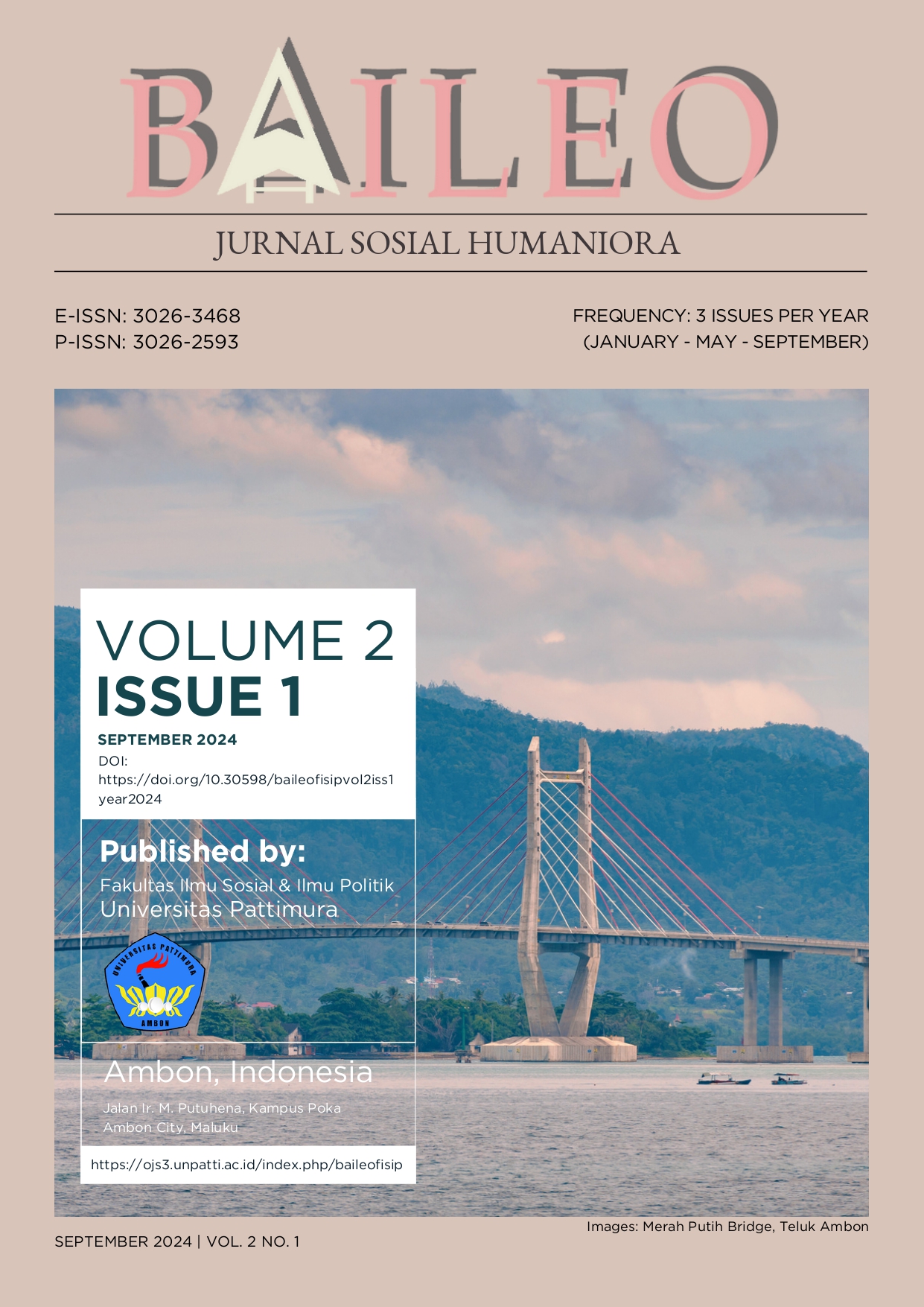Vocational Education in India: A Policy Analysis and Case Study of NEP 2020 Implementation
Abstract
India’s education policies, including the National Education Policy (NEP) 2020, aim to empower human resources and reduce social disparities by improving access and relevance in education. Vocational education, despite its significant potential in producing skilled labor, often remains disconnected from mainstream academic education, receiving inadequate attention and integration. As a result, graduates often lack sufficient employability and entrepreneurial skills, limiting their opportunities in the job market and in starting their own businesses. This study analyzes national education policies from 1968, 1986, 1992, up to NEP 2020, and includes a case study of the Skill Enhancement Courses at the University of Delhi. Policy analysis methods were used to evaluate policy changes, while the case study aimed to assess the practical impact of these policies. The findings show that NEP 2020 has successfully promoted the integration of vocational education with academic education, and the Skill Enhancement Courses at the University of Delhi have been effective in improving students’ employability skills. The novelty of this research lies in NEP 2020’s priority to integrate vocational education into the mainstream curriculum, demonstrated to be effective through its implementation at the University of Delhi. This study recommends strengthening the synergy between vocational and academic education to address the skills gap among graduates, particularly in the context of developing the social sciences and humanities.
Downloads
References
Afdhal, A., Hidayat, R., & Damayanti, A. (2023). Building Sociological Imagination through Social Media:: A Study on Instagram Account@ Sociology_Perspective. The Journal of Society and Media, 7(2), 425–445. https://doi.org/https://doi.org/10.26740/jsm.v7n2.p425-445
Aithal, P. S., & Aithal, S. (2020). Analysis of the Indian National Education Policy 2020 towards achieving its objectives. International Journal of Management, Technology, and Social Sciences (IJMTS), 5(2), 19–41. https://doi.org/https://doi.org/10.47992/IJMTS.2581.6012.0102
Batra, P. (2021). Re-imagining curriculum in India: Charting a path beyond the pandemic. Prospects, 51(1), 407–424. https://doi.org/https://doi.org/10.1007/s11125-020-09518-6
Chandel, R., Sharma, R., Srivastava, A., Kumar, M., Bala, J., Thakur, G., Kumar, A., Sandal, S., Kumar, A., & Devi, R. (2023). Raj Rajeshwari. Journal of Psychological & Educational Research (RRJPER), 9(4).
Das, P., & Das, G. (2024). National Education Policy-2020: Research and Innovations for Transforming Higher Education. University News, 62(11), 20–27.
Freeman, B. (2021). India’s National Education Policy 2020 and Australia’s education engagement: Key findings from Roundtables. Research Policy, 9(2).
Ganie, G. R. (2022). NEP, 2020: Challenges and Possible Solutions of Vocational Education and Training in India. Towards Excellence, 14(1), 708–720. https://doi.org/10.37867/TE140168
Gouda-Vossos, A., Sarkar, M., Thompson, C., Overton, T., & Ziebell, A. (2023). An Evidence-Based Approach to Employability Curricula and Transferable Skill Development: A Mixed Methods Study. Journal of University Teaching and Learning Practice, 20(5), 4–14. https://doi.org/10.53761/1.20.5.05
Gupta, B. L., & Choubey, A. K. (2021). Higher education institutions–some guidelines for obtaining and sustaining autonomy in the context of NEP 2020. Higher Education, 9(1).
Hidayat, U. S. (2024). Implementation of Honesty Canteen Program as Character Education Strategy in Elementary Schools. Baileo: Jurnal Sosial Humaniora, 1(3), 256–267. https://doi.org/https://doi.org/10.30598/baileofisipvol1iss3pp256-267
Illeris, K., & Ryan, C. (2020). Contemporary theories of learning: Learning theorists... in their own words. Australian Journal of Adult Learning, 60(1), 138–143.
Jain, S., & Goel, O. (2019). The Impact of NEP 2020 on Higher Education In India: A Comparative Study of Select Educational Institutions Before and After The Implementation of The Policy. 5(1).
Kalyani, P. (2020). An empirical study on NEP 2020 [National Education Policy] with special reference to the future of Indian education system and its effects on the Stakeholders. Journal of Management Engineering and Information Technology, 7(5), 1–17.
Kumar, A. (2021). New education policy (NEP) 2020: A roadmap for India 2.0. University of South Florida (USF) M3 Publishing, 3(2021), 36.
Kumar, K., Prakash, A., & Singh, K. (2021). How National Education Policy 2020 can be a lodestar to transform future generation in India. Journal of Public Affairs, 21(3), e2500. https://doi.org/https://doi.org/10.1002/pa.2500
Makam, S. (2022). NEP 2020–A Critical Analysis of New Education Policy and Challenges in its Implementation. Anvesha, 14, 20–28.
Mehrotra, S. K. (2020). The national skills qualification framework in India: the promise and the reality. Working Paper.
Mishra, R. K., Kujur, S. K., & Trivikram, K. (2023). Higher education and employment in India. In Higher Education, Employment, and Economic Development in India (pp. 1–16). Routledge India. https://doi.org/10.4324/9781003329862-1
Patel, J., Vannai, S., Dasani, V., & Sharma, M. (2024). Does my school teach me entrepreneurship? School entrepreneurship curriculum and students’ entrepreneurial intention: a serial mediation-moderation analysis. International Journal of Social Economics, 51(12), 1629–1645. https://doi.org/10.1108/IJSE-05-2023-0350
Pilz, M., & Regel, J. (2021). Vocational Education and Training in India: Prospects and Challenges from an Outside Perspective. Margin: The Journal of Applied Economic Research, 15(1), 101–121. https://doi.org/10.1177/0973801020976606
Sharma, K., Arya, V., & Mathur, H. P. (2023). New Higher Education Policy and Strategic Plan: Commensurate India’s Higher Education in Global Perspective. FIIB Business Review, 12(2), 231–240. https://doi.org/10.1177/23197145221125351
Tripathi, S. N., Bhatia, A. K., & Sethi, R. (2023). Assessing the Sustainability of ‘Vocational Education’in Higher Education Institutions under the NEP 2020 in India. Research in Science Education, 7(2).
Varma, V., Gupta, R., Bhardwaj, G., Tiwari, M., & Tiwari, T. (2021). Impact of New Education Policy in the Changing Business Environment: An Empirical Study with Special Reference to Skills Development in India. Turkish Online Journal of Qualitative Inquiry, 12(4).
Copyright (c) 2024 Kanwal Jeet Singh, Vembanan Gunasekaran

This work is licensed under a Creative Commons Attribution 4.0 International License.




